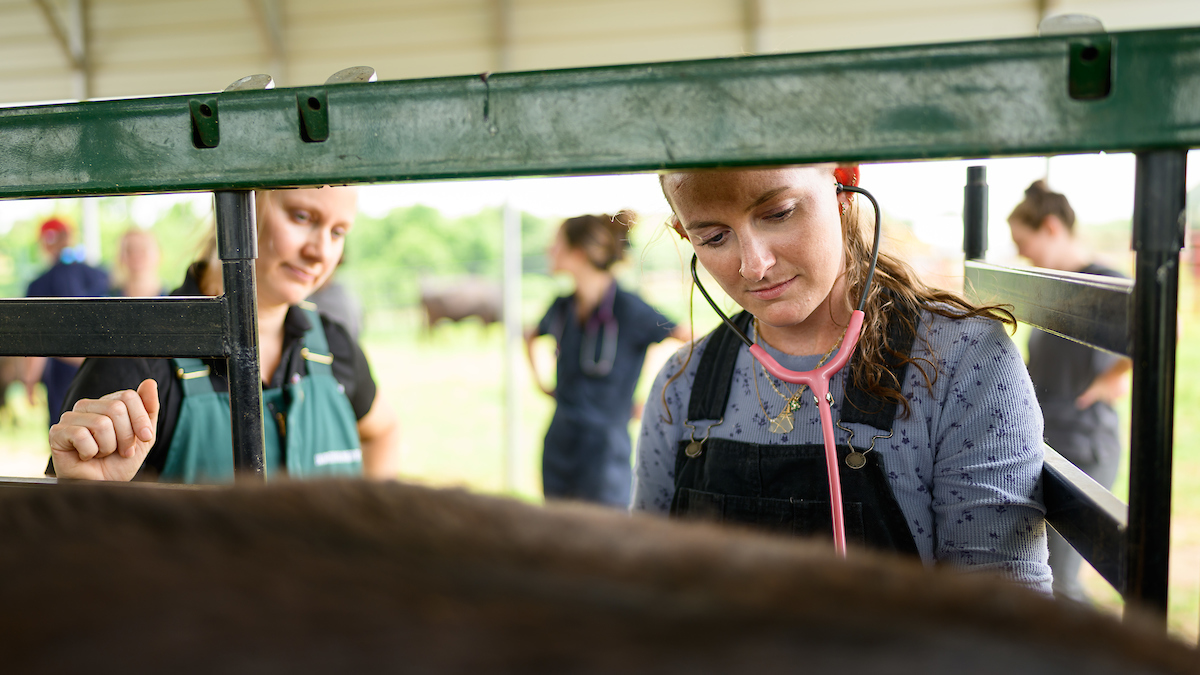Cheng, Ghashghaei Selected as University Faculty Scholars

Two innovative researchers at the North Carolina State University College of Veterinary Medicine (CVM) are part of the new class of University Faculty Scholars.
Ke Cheng, associate professor of regenerative medicine, and Troy Ghashghaei, associate professor of neurobiology, are among the 22 recipients announced by NC State Chancellor Randy Woodson. Both are part of the CVM’s molecular biomedical sciences department.
Launched in 2012, the annual University Faculty Scholars program honors “top early- and mid-career faculty who are pursuing research to solve society’s most pressing problems,” according to the university. Scholars carry the title for five years and receive a $10,000 annual award. Faculty are nominated by their respective colleges.
“It’s great to see two of the College of Veterinary Medicine’s leading innovators and investigators get this recognition, says CVM Dean D. Paul Lunn. “Both Troy and Ke are highly deserving. They do amazing work and they do a lot to help others.”

Cheng directs the BioTherapeutics Lab at the CVM, with research centering on biomaterials, stem cells and nanomedicine. Cheng came to the college in 2013 as part of the Chancellor’s Faculty Excellence Program, designed to bring world-class minds in diverse fields to NC State. Cheng’s work is supported by grants from the Chancellor’s Innovation Fund and the National Institute of Health.
Much of Cheng’s research is focused on using stem cell therapy to regrow healthy heart tissue in heart attack patients.
“I feel honored to be named a University Faculty Scholar,” says Cheng. “What is really unique to this university is the direct support from the chancellor and provost levels. Now, with this new scholarship, I look forward to taking my work to the next level.”
Since 2006, Ghashghaei has directed a lab of neuroscientists investigating how the brain develops and ages, as well as and how it’s impacted by injury or disease. Ghashghaei’s research into the behavior of brain neurons and genes connected to new brain cell production could have future implications for the treatment of several diseases linked to aging, including Alzheimer’s.
“There are many visionary changes guided by our provost and chancellor over the last few years that are pushing NC State into leadership positions across the globe. I’m thankful for having programs like this in place to support faculty,” says Ghashghaei. “I’m also indebted to all the wonderful and brilliant students, trainees and colleagues whose hard work and dedication has been inspirational.”
Cheng and Ghashghaei are in impressive company. Among other members of the class are NC State leaders in a wide range of fields, including aerospace engineering, environmental resources, anthropology, science, technology, engineering and math education.
~Jordan Bartel/NC State Veterinary Medicine


